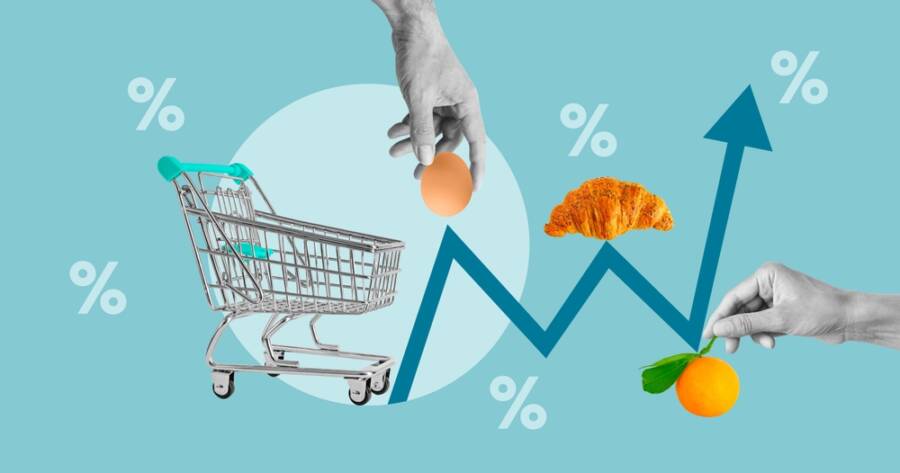Inflation is a term we often hear in the news, but many people don’t fully grasp its real-world implications. At its core, inflation refers to the general rise in prices over time, which can decrease your purchasing power. Understanding how inflation works, and how it affects everything from groceries to savings, empowers you to make smarter financial choices. With this knowledge, you can better manage your budget and protect your long-term financial well-being.
What is Inflation?
Inflation is the gradual increase in the prices of goods and services over time, leading to a decrease in the purchasing power of money. In simpler terms, when inflation occurs, each dollar you have buys fewer goods and services than it did before.
For example, if the inflation rate is 2%, something that cost $1.00 last year might cost $1.02 this year. While a small amount of inflation is normal and even necessary for a healthy economy, excessive inflation can erode savings and make everyday essentials more expensive.
Understanding inflation is crucial because it affects nearly every aspect of our financial lives, from how much we pay for groceries to the interest rates on our loans. By grasping the basics of inflation, you can better prepare for its impact and make informed financial decisions.
How Inflation Happens
Inflation can occur for several reasons, but it generally stems from two primary factors: demand-pull inflation and cost-push inflation. Demand-pull inflation happens when the demand for goods and services exceeds supply, leading to higher prices. This can occur during times of economic growth when consumers have more money to spend, driving up demand.
On the other hand, cost-push inflation arises when the cost of producing goods and services increases, often due to rising costs of raw materials, labor, or energy. Companies pass these higher costs onto consumers in the form of increased prices.
Another factor contributing to inflation is the expansion of the money supply. When more money is printed and circulated, it can decrease the value of currency, leading to inflation.
The Impact of Inflation on Everyday Life
Inflation affects everyone, and its impact can be felt in various aspects of daily life. One of the most noticeable effects is the rising cost of living. Everything from groceries and gas to rent and utilities becomes more expensive during periods of inflation. This decrease in purchasing power means that your money doesn’t stretch as far as it used to, making it harder to maintain the same standard of living. For those on fixed incomes, such as retirees, inflation can be particularly challenging as it erodes the value of their savings.
Additionally, inflation can influence financial decisions, such as borrowing and investing. For example, if inflation is higher than the interest rate on your savings account, the real value of your savings decreases over time. Understanding how inflation impacts your everyday life is essential for planning your finances and making decisions that protect your purchasing power.
How Governments and Central Banks Manage Inflation
Governments and central banks play a crucial role in managing inflation to ensure it stays within a healthy range. One of the primary tools they use is adjusting interest rates. When inflation is high, central banks may raise interest rates to cool down the economy by making borrowing more expensive, which reduces consumer spending and business investment. Conversely, if inflation is too low, central banks might lower interest rates to encourage borrowing and spending.
Another strategy is controlling the money supply through monetary policies. For example, central banks can buy or sell government securities to influence the amount of money in circulation. Fiscal policies, such as government spending and taxation, also play a role in managing inflation.
Tips to Navigate Inflation
Navigating inflation requires proactive financial planning to protect your purchasing power and savings. One effective strategy is to create and stick to a budget, which helps you track your expenses and identify areas where you can cut costs. Investing in assets that typically outpace inflation, such as stocks, real estate, or inflation-protected securities, can also help preserve your wealth over time.
Additionally, consider maintaining a diversified investment portfolio to spread risk and increase the chances of higher returns. Keeping an emergency fund is essential during inflationary periods, as it provides a cushion against unexpected expenses or economic downturns. Lastly, regularly review and adjust your financial goals and strategies to stay ahead of inflation’s impact.
Make Informed Choices
Understanding inflation is key to making informed financial decisions that protect your purchasing power and secure your future. By grasping the basics of how inflation works and its impact on everyday life, you can better navigate economic changes and manage your finances effectively.




